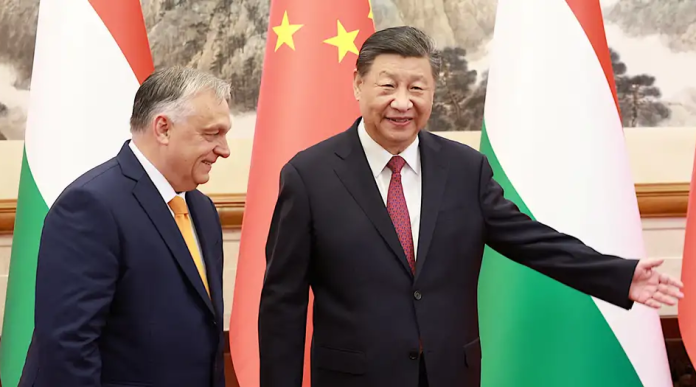Hungarian Prime Minister Viktor Orbán left Beijing en route to Washington after meeting with Chinese President Xi Jinping as part of “peace mission 3.0.”
Orbán’s visit to the Chinese capital came after his recent trips to Kyiv and Moscow, where he tried to position himself as a mediator seeking an end to the ongoing war in Ukraine.
The Hungarian prime minister emphasised China’s role as a “key power in creating the conditions for peace” in the conflict in the Ukrainian territories, which started back in 2014 and escalated into a full-scale war in February 2022.
Believe me: the next two or three months will be much more brutal than we think.
He made the statement following his meeting with Russian President Vladimir Putin in the Kremlin and before his arrival in China.
“There are more weapons [involved] and the Russians are more determined. The energy in the confrontation, the number of dead, the number of victims will become more brutal than in the last seven months.”
He also insisted that his goal was “peace and a cease-fire.”
Xi Jinping’s response
Chinese President Xi, for his part, used Orbán‘s visit to call on the international community to “create conditions and provide assistance for the two sides to resume direct dialogue and negotiations.”
Only when all major powers exert positive energy rather than negative energy can the dawn of a ceasefire in this conflict appear as soon as possible.
Despite Xi’s calls for peace, China did not attend the recent Ukraine-led international summit in Switzerland, preferring instead to promote its own peace plan developed with Brazil in May. Russia supported the plan.
EU reaction
Orbán is the only EU leader who has maintained close relations with Putin since the outbreak of the war in Ukraine. He has refused to send arms to Ukraine and has regularly opposed EU support for Kyiv.
Earlier this month, Hungary took over the EU presidency. However, when Orbán left Beijing on Monday, German Vice Chancellor Robert Habeck echoed other European leaders by insisting that the Hungarian prime minister should not speak for the bloc.
EU foreign policy chief Josep Borrell said Orbán’s recent trip to Russia was purely a bilateral matter and he “has not received any mandate from the EU Council to visit Moscow.”
China, meanwhile, continues to deepen economic ties with Hungary, which remains open to such an investment despite EU sanctions imposed on Beijing, particularly on imports of Chinese-made electric vehicles (EVs).
As the EU tries to reduce its dependence on the world’s second-largest economy, Hungary’s foreign minister said Chinese investment in Hungary’s electric mobility sector could create 25,000 jobs. Viktor Orbán has sought closer economic ties with China, Russia, and other Asian countries as part of his “eastern opening” foreign policy.
The Hungarian government recently lauded ongoing economic projects initiated in China and worth about 15 billion euros ($16 billion).
